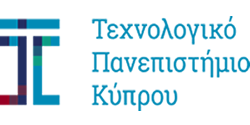Revenue and Yield Management (HTPM_322)
This course is vital to Hospitality and Tourism
students, since it emphasises the importance of running a smooth profitable
hotel operation. It provides students with an insight into the management of
the Rooms Division area of the hotel operations, including the explanation of
the best practices, techniques and strategies currently used in the hospitality
industry by front office, rooms division and revenue managers.
The main aim of this course is to introduce students
to the history, structure and skills of Revenue & Yield Management, as it
pertains to the hospitality industry. Students will learn to use various tools
which will assist them in predicting customer demand at the micro market level,
and the maximisation of revenue through pricing optimisation. They will also be
required to interpret and utilise financial data to make yield and revenue
decisions.
Front Office Management (HTPM_321)
Negotiation Skills (HTMM_302)
This
module is designed to help students to develop skills for more effective
negotiation both within and outside the organisation. It will also help them to realise that
negotiation is the art to business success.
Organisations negotiate every day and it is important to equip students
with the proper skills and knowledge to do just that.
Managerial Economics (HTMM_371)
This module refers to the application of economic theory to examine how a firm can take optimal managerial decisions in the face of the constraints and economic environment it faces.
It will provide students with the knowledge, tools and techniques to better understand economic problems and to make effective economic decisions under conditions of uncertainly and risk. Demand, cost and pricing decisions are emphasised. Topics include conceptual understanding of consumer behavior in the context of the economics science, supply and demand, decision-making criteria and procedures, cost theory and estimation, pricing theory and practice. Extensive use of examples from the Travel and Tourism Industry will be provided throughout the course to facilitate the enhancing of students’ motivation, understanding and learning.Hospitality and Tourism Law (HTMM_361)
The
module aims to provide students with a basic understanding of the legal aspects
relating to hotel, restaurant and tourism management. Students are exposed to the laws and
regulations governing guest relationships, contracts, employee relations, civil
rights, safety and product liability, as well as guest/tourist rights. Through
this module students learn how to access the implications of the law in their
line of business, enabling them to secure law abiding operations, avoid and/or
deal effectively with possible legal risks.
Food and Beverage Management (HTPM_311)
This module aims to give students the opportunity to
build upon knowledge gained during the first two years, and focuses upon the
wider concepts of the management of food and beverage operations, developing a
number of professional and technical skills that are important in successfully
managing such operations. It also aims to give students the ability to view the
Food and Beverage operation in a systematic way, adopting problem solving
approaches that are important to the conceptualisation and successful running
of Food and Beverage outlets.
It aims to provide knowledge and understanding of the management of food and beverage operations, the composition of the restaurant sector, the concept of control, staffing issues, marketing and managing quality in Food and Beverage operations. The module introduces the important element of human resources management within food and beverage operations, emphasizing the control aspect of management, giving a clear and methodical guide to food and beverage control systems and how to use them for constructive analysis performance. It also examines aspects of controlling costs, budget, pricing, revenue and profit.
Κουλτούρα και Διατροφή (HTPM_312)
This module focuses on understanding the intrinsic behavior between people and food, and how the crossing of cultures in food and beverage has an impact on eating patterns. It examines the study of food in behavioral, social, traditional and cultural context, and provides the cultural backdrop to enhance the understanding of food use.
This module enables students to investigate
how food and drink is associated with cultural norms, behaviors and social
convention, and examine how identity - religious, ethnic, national - is
intensely bound up with food and beverage.The module enables future food and beverage managers to develop their
professional ethics and act responsibly in contemporary multicultural
environments.
Hospitality and Tourism e-Marketing (HTPM_341)
The rapid growth of technology have emerge the need of E-Marketing. Millions of consumers are now using technology for every purchase they make. This module is design to provide students the innovative ways of practicing marketing using internet and other digital tools.
